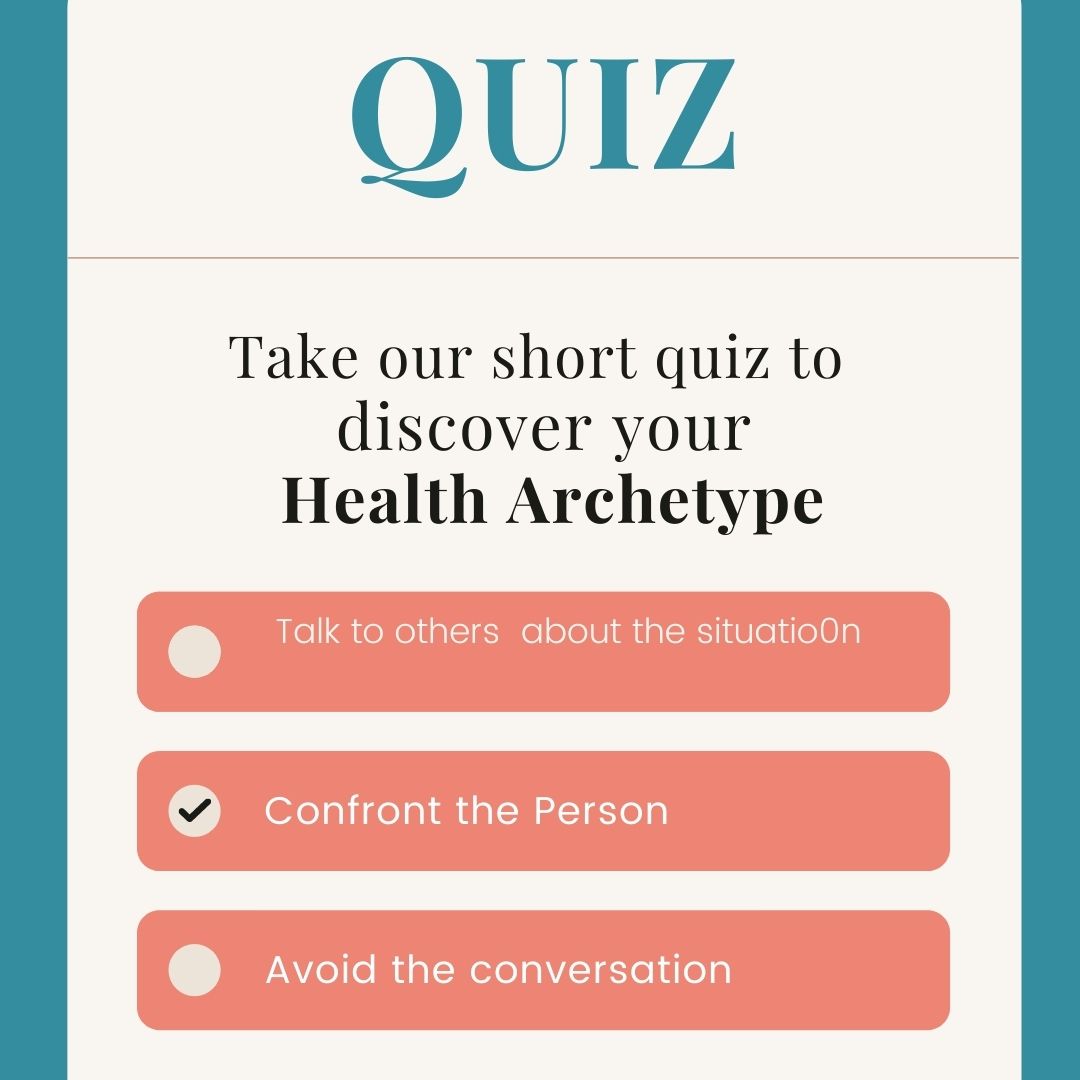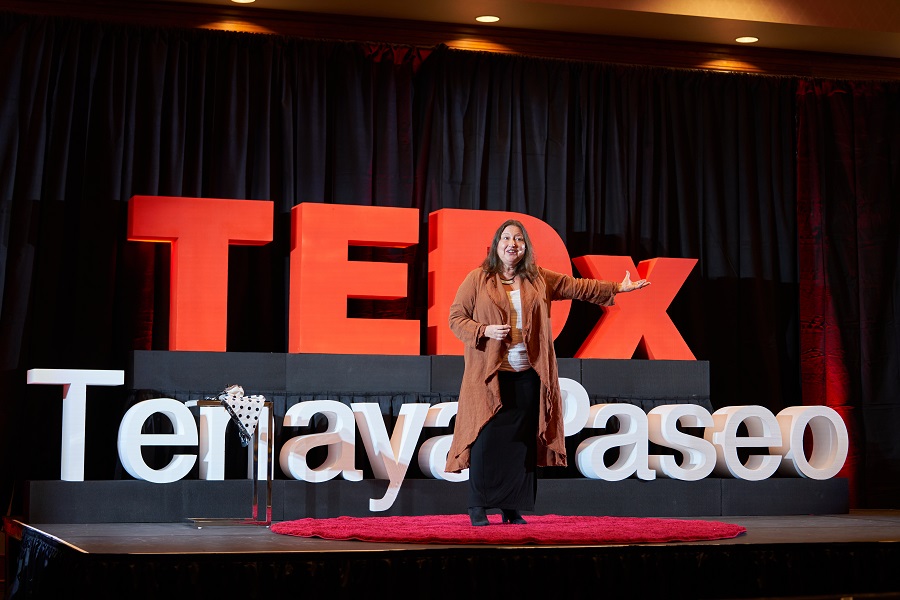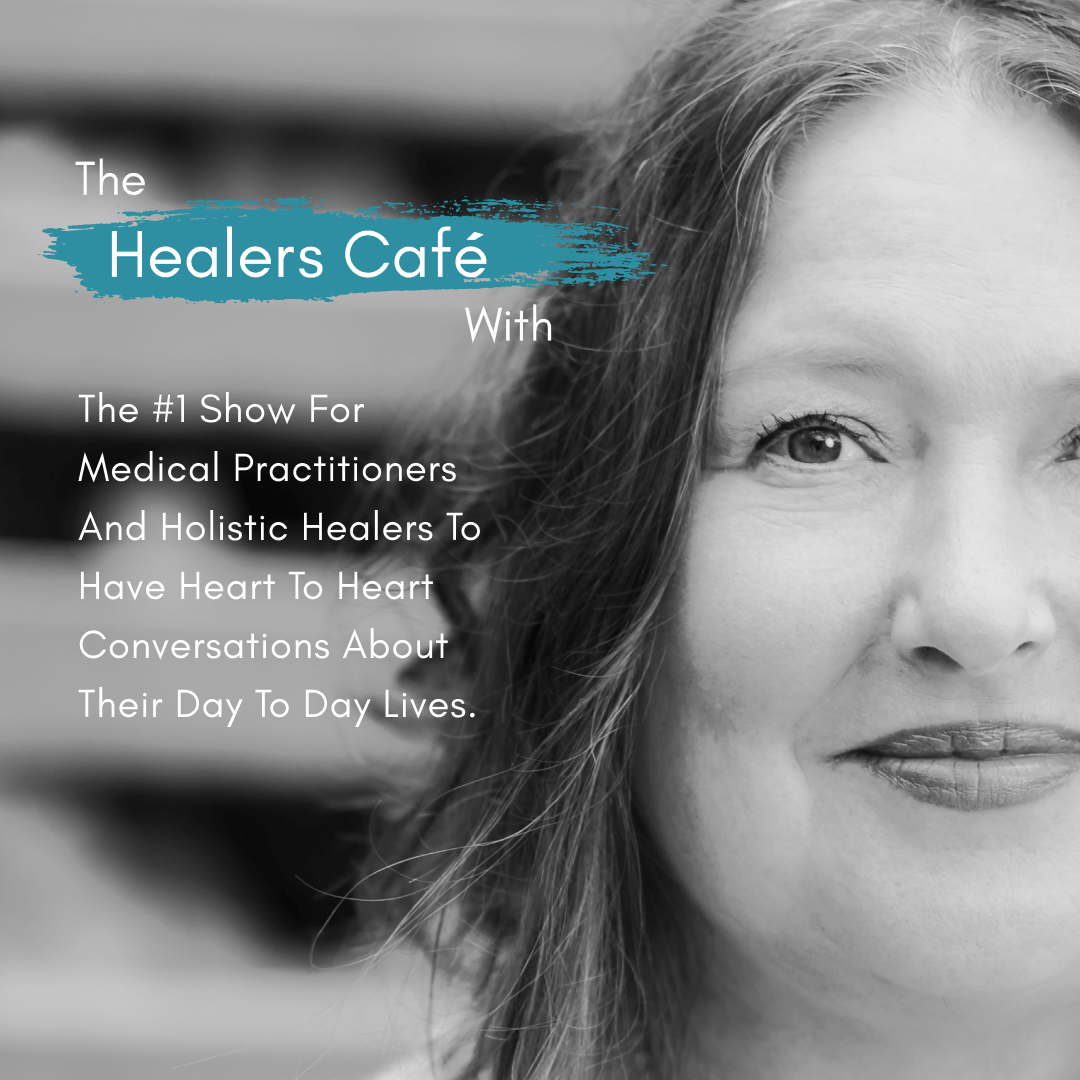
The #1 show for medical practitioners & holistic healers to have heart to heart conversations about their day to day lives.

Manon Bolliger (Deregistered with 30 years of experience in health)
iTunes | Google Play | Spotify | Libsyn | iHeartRadio | Gaana | The Healers Cafe | Radio.com | and many more

Ruchi Pinniger
Redefining Prosperity. Aligning Business Goals with Personal Well-Being – Ruchi Pinniger on The Healers Café
In this episode of The Healers Café, Manon Bolliger, FCAH, RBHT, speaks with Ruchi Pinniger about her transformative journey from Wall Street to helping business owners overcome financial and emotional barriers, align their personal and business goals, and redefine prosperity through well-being, spirituality, and healthy relationships.
Highlights from today’s episode include:
Ruchi Pinniger 11:42
And I think it is really important to find someone who you trust and who you feel really comfortable with, who you can express yourself to, who you feel safe, even feeling emotional or crying with, because money does bring up
Ruchi Pinniger 19:08
So I’m not just saying, say it and it’s there magically. I’m saying, be clear on what you’re what you want. Use the language to get you there and take the action so the actions are paying attention to your money?
– – – – –
– – – – –
Manon Bolliger 20:57
go outside or, you know, take more time in nature.
Manon Bolliger 25:00
Well, I mean, all this discussion really reminds me of that starting your own business and going through all those steps is a huge healing journey.
ABOUT RUCHI PINNIGER:
Ruchi Pinniger, International Speaker, Venture Capital Investor, Founder and CEO of Watch Her Prosper®, is dedicated to providing financial mentorship, support and services that women-led service-based businesses need to succeed. Ruchi takes a holistic approach to clients’ needs by providing financial guidance, bookkeeping, tax-time readiness and heightening her clients’ prosperity mindset. Ruchi brings nearly 20 years of experience in the Wall Street and corporate world to the Watch Her Prosper® team and was recently named one of the “Women Leading the Finance Industry.” Watch Her Prosper® has helped hundreds of business owners to identify their spiritual connection to wealth and learned beliefs about money, while viewing their prosperity in a new way. Clients can then break free from shame and guilt surrounding wealth and see huge results in their profitability and economic growth. Ruchi connects the business to the person, understanding that individuals running small businesses have personal financial goals.
As a global speaker, Ruchi has spoken at Princeton University, NYU, Luminary and some of the world’s most coveted stages about money and business-related topics such as financial leadership, tax-readiness, budgeting, spirituality and well-being surrounding personal and business finances. Ruchi is an Executive Board member for Savvy Ladies, an organization that helps women improve their financial literacy and take control of their money. She also serves on the board for the Pajama Program, a nonprofit organization helping children improve their quality of sleep so they can thrive. Ruchi is the proud recipient of the Entrepreneur Champions Award 2024, as she is passionate about helping all entrepreneurs to live their most prosperous lives. As a thought-leader and industry expert, Ruchi is regularly featured in GOBankingRates, Millie Magazine, Best Self Magazine, BBC, SiriusXM and The Daily Refresh among others. While living in NYC, Ruchi enjoys taking time away from the city at her family’s lakehouse. She values traveling with her loving husband and incredible teenage son. They are foodies and love to experience different world cultures together.
Core purpose/passion: I am passionate about helping women see their money in a new way.
Website | Facebook | Instagram | LinkedIn |
ABOUT MANON BOLLIGER, FCAH, RBHT
As a recently De-Registered board-certified naturopathic physician & in practice since 1992, I’ve seen an average of 150 patients per week and have helped people ranging from rural farmers in Nova Scotia to stressed out CEOs in Toronto to tri-athletes here in Vancouver.
My resolve to educate, empower and engage people to take charge of their own health is evident in my best-selling books: ‘What Patients Don’t Say if Doctors Don’t Ask: The Mindful Patient-Doctor Relationship’ and ‘A Healer in Every Household: Simple Solutions for Stress’. I also teach BowenFirst™ Therapy through Bowen College and hold transformational workshops to achieve these goals.
So, when I share with you that LISTENING to Your body is a game changer in the healing process, I am speaking from expertise and direct experience”.
Mission: A Healer in Every Household!
For more great information to go to her weekly blog: http://bowencollege.com/blog.
For tips on health & healing go to: https://www.drmanonbolliger.com/tips
SOCIAL MEDIA:
– Linktr.ee | Rumble | Gettr | Facebook | Instagram | LinkedIn | YouTube | Twitter |
About The Healers Café:
Manon’s show is the #1 show for medical practitioners and holistic healers to have heart to heart conversations about their day to day lives.
Subscribe and review on your favourite platform:
iTunes | Google Play | Spotify | Libsyn | iHeartRadio | Gaana | The Healers Cafe | Radio.com | Medioq | Audacy |
Follow The Healers Café on FB: https://www.facebook.com/thehealerscafe
Remember to subscribe if you like our videos. Click the bell if you want to be one of the first people notified of a new release.
* De-Registered, revoked & retired naturopathic physician after 30 years of practice in healthcare. Now resourceful & resolved to share with you all the tools to take care of your health & vitality!
TRANSCRIPT
Introduction 00:00
Welcome to the Healers Café. The number one show for medical practitioners and holistic healers, to have heart to heart conversations about their day to day lives, while sharing their expertise for improving your health and wellness.
Manon Bolliger 00:22
Welcome, to the Healers Cafe. And today I have with me Ruchi Pinniger, and she is going to talk about prosperity, redefining potentially money or explaining it within a holistic context. And I thought that this would be very helpful to people in the healthcare community or in the spiritual community, because often we’ve been taught that, you know, money is a taboo, and yet we needed to to live, to look after ourselves and after our families. So I thought, well, how perfect. Let’s talk about it from a different angle. So I really welcome you here, and before we start on that subject, what actually led you into this field? Because I know you also do sort of readings with people. So what was your interest?
Ruchi Pinniger 01:25
Yeah, I’d love to share sure. And first, just really quickly, it’s so wonderful to be here with you, Manon, and with all your listeners. So thank you. And so what led me here? I mean, there’s a few stories that really come to mind, but as a teenager, I really wanted to be a therapist, actually, because I was one of those people who was called on from all of my friends to help them solve their problems. And, you know, all the breakups all the things that come with with teenage hood. And however, my family really encouraged me to go into business, because my mom was really graded and really succeeded here in this country. And so I took their advice and for many years, you know, I even was on Wall Street and climbed that success ladder and financial ladder, but I just really wasn’t feeling fulfilled, and I knew there was something more for me out there. And I ultimately left the corporate world, and I was really sort of lost and trying to figure out, what is it I want to do? What am I meant for? And I hired this amazing coach who was somebody who really helped me get into spirituality. I always had it in me, but she’s the one who sort of brought it out of me, and she started to say to me, you know, use this time as a gift and really listen to the messages from the universe and see what is needed for you, see, see who needs …..
Read more...
your support. And I started to hear all of these amazing, successful business owners who were in business, loved what they did, were amazing at it, but really had the stories around I’m not good at the money, and they ignored the money. And we know that’s such an important part of running a business, because it’s how we make impact. So one of those people was a great friend of mine. I started to help her, started to see how the work I did with her helped her fall in love with her business again, make really great decisions to ensure she was profitable and also living a beautiful life, like she was doing for her patients. And then she started telling people about me and the first person I met for a consult, after I told her I could help her, got tears in her eyes and said, I feel like an angel sent you. And that was it. That’s how I knew I was meant to do this work and use my love of helping and use my skills to do the work to help others.
Manon Bolliger 03:43
Well then, so, as you started, obviously, I mean, we’ve done this now for several years, from what I’m seeing, what are the biggest issues that you come across, or the, you know, sort of the obstacles that at least need to be addressed or looked at or not denied anyways.
Ruchi Pinniger 04:07
Yeah, for sure, a lot. I mean, you know, there’s certainly a lot around our relationship with money, and that’s something I talk about a lot. And we can get dig, we can dig deeper into that, also our money habits, which is, which is part of our relationship with money. And you know, what I would see is people were running businesses, but really weren’t understanding if they were profitable or not, or were really feeling constricted in their bank accounts and sort of even, would you, would you say, struggling in a way, you know, in their own lives. So they want to help the world, but they didn’t sort of help themselves to make sure that they were getting all that they needed. And so, you know, and then there’s the money. So that’s like the mental piece of it, you know, and how they were operating, but also just their money habits. For example, they weren’t separating their business and personal finances. They weren’t saving for taxes and, you know, for emergencies and even for growth and investments that they wanted to make in their business. You know, they weren’t operating from a place of knowledge and data, which is really all our numbers are. They’re information. So those are some of the things.
Manon Bolliger 05:18
So it’s, I mean, I know when I was thrown into business, I didn’t really understand that it was a business. I thought, Oh, I’m in practice. And, you know, we had, it was interesting, though, we did have one teacher who said, make a wish list of 100 things that you want to have seen in your life, or have, you know, participated in, seen, owned, whatever it might be, you know. Anyways, and I thought, Oh, well, okay, that’s my business training, you know. And, but it actually turned out to be very helpful, even though that was, like, I think, two hours in the afternoon, and we, we had this list, I know now you know more of the schools do give a little bit more training than that, but it really is the idea of what do you want. You know in the end, like the clarity of what is it you want on all levels, right? Your personal life. You know how you mix with your business and what you want for your business like people are not envisioning the possibility. You know bigger is so right, necessarily, but it can be. You know?
Ruchi Pinniger 06:35
It’s so true. I love that you said that. I love that you said that because it’s so important to align our personal goals with our business goals. They’re not two separate things, right? We’re working to live and living to work, in many cases, because we have so much joy in what we do. So that is another big thing is people aren’t really understanding what is it I need to live that most beautiful, prosperous life that I want to live, and how does that translate into what I need to bring in in revenue in order to be able to cover my business expenses and my taxes and saving for emergency fund, and then ultimately paying myself to do the things that I want to do.
Manon Bolliger 07:15
So how do you start with people? Is there like, I mean, there must be a method to the math.
Ruchi Pinniger 07:22
There is, there is some method, certainly as we start, and yet at the same time, as you know, you know, we’re all different, and we all need different types of support. So in many cases, with our clients, we’re going a little bit more spiritual, and in many cases, we’re just sort of focused on practical and tactical. So you know, when we start with a client. So first of all, just to share, like, what we do as a company at Watcher Prosper is we work with our clients to be really a financial partner to them. So we’re providing financial guidance. We’re providing bookkeeping so that we have really excellent numbers to work with. We’re helping them get ready for tax time and be prepared. And then, you know, I say with a twist of spirituality and mindset. So when we start with a new client, the first thing we do is just get to know them a little more personally and what they what they want to do, what are their values, and mainly what we’re trying to do is just get to a place where we understand what their numbers are, and then that will help to guide and navigate the types of conversations. So then we meet with them regularly. We we talk about their numbers. We talk about, you know, very open ended. Sometimes we just say, Okay, how are things going? How you know, what do you most need right now? Where can I best support you? And the conversation beautifully opens up in a way where sometimes, for example, I may start a conversation. You know, I have my or, like, a whole bunch of oracle decks. So if a client’s having a hard time, I might just say, you do you want to pull a card? And, like, here’s a couple of decks, what do you think? And I’ll let them, like, use their own intuition as to which one they’re called. Call is calling to them, and, you know, just to hear what message they have from the universe and and their, you know, their guides. So it may just start like that, and sometimes they just may be really stressed and want to jump into the numbers and understand, if they have, you know what they need to pay a certain bill or meet some of their goals. So it really, it really is so customized. The key though, in the beginning, is really getting their numbers straight so that wet we can guide them in a really beautiful way.
Manon Bolliger 09:24
And do you have resistance to actually being hired at all like, you know? Because I know what, I had to make a decision. Do I want a front desk person? And it wasn’t hard. I mean, I I realized that I can’t do it all, so I went that far. And once I had that, then, you know, I had a bookkeeper. But first I thought, oh, I can do the books. It’s pretty straightforward. I’ll just get that final accounting touch, you know. And, you know, I met this woman, and she just said. Well, you will see that I will save you more money in the end than it will cost you to pay me. And I thought, Oh, that’s a challenge I can take. And yeah, she was right.
Ruchi Pinniger 10:13
That’s amazing.
Manon Bolliger 10:14
I was like, Okay, I really had to learn how to know that this is not my field, but to work with somebody who loves numbers as much as I love being part or participating in somebody’s healing experience, right? You know, to just understand we can’t do it all.
Ruchi Pinniger 10:37
That’s right. I mean, I’ll tell you the truth if you know it. The reality is, by the time people call us, they’re ready, they won’t call or they won’t email or fill out the form to have a consult if they’re not ready. So most of the time, there’s not as much resistance once we’re on the phone, because, to be honest, I have kind of a comforting voice. I think I, you know, I build trust pretty easily. And I think people really, you know, hear the love that I have in my voice, and feel, feel that, though there absolutely is resistance before they come. You know that people avoid the numbers. And in fact, many of our clients come to us for two reasons, one, because they’ve been in business for many years, and they’ve just not done anything with the numbers, nothing formal or two, they’re working with somebody, but they haven’t built a trust, and they feel judged, and maybe their numbers aren’t in great shape, so they don’t even know necessarily what they’re looking at. So those are usually the reasons people come and, you know, yeah, so that’s, that’s what’s really nice.
Ruchi Pinniger 11:42
And I think it is really important to find someone who you trust and who you feel really comfortable with, who you can express yourself to, who you feel safe, even feeling emotional or crying with, because money does bring up a lot of emotion. There’s a lot around money where there’s, we have our beliefs that we carry with us, right? Most of us want to save the world. We want to do good. So we have a belief that maybe you can’t make money and do good. I mean, that’s a really common one. Many of us have stories similar from our childhood. Maybe our parents argued about money, so we think money is bad. It’s not safe to hold money, right? So there’s lots of different stories and angles that that people are coming coming from.
Manon Bolliger 12:25
So when you say that you offer a holistic service, you obviously do the numbers, but then you dig into those sort of blocks or belief systems to help kind of work through them, I would imagine, right?
Ruchi Pinniger 12:43
So, if, if we’re right, so if we’re meeting with a client, and we’re not like, we’re just really aware, right? Because we’re building a relationship with you, and we’re aware when you start to use kind of the negative language around money, or when you when you sort of bring up something that might impact how, how you’re showing up for these meetings, like, there’s clients that say, Oh, I’m always so nervous. You know, in the beginning this happens, right? Because they don’t know us as well, though they’re like, I’m nervous when I’m seeing you. And then after a couple of times, they start to see the comfort and the safe space and the support system that they’ve that they’ve got with us, and that sort of very quickly disappears, which is nice.
Manon Bolliger 13:21
So what is the nervousness about? Like, what is it that people are…why is there such a I don’t want to use the word fear, because it may not be fear, but what is it holds people back that you’ve seen?
Ruchi Pinniger 13:38
Yeah, a lot of times it’s self judgment. That’s the big one. I would say. I mean, that’s what really comes to my mind when you ask that question. We judge ourselves, whether we think we’re making too much too little, right? We do that. And, you know, that’s why we sort of want to really create that safe space, and we really want to be like a cheerleader, encouraging people. So yes, we’re in your numbers. Yes, we’re going to be looking at ways to save, looking for consistency. But we also might say, Okay, are you charging enough? Or have you thought about doing this? Or have you thought about doing that just to be someone who’s another, another set of eyes looking at it with you, to help you think a little bit bigger.
Manon Bolliger 14:18
And when you do that next step, looking at what you see, and I know it’s individual. I mean, alpha’s individual, so people are but there’s still trends that you can see. I mean, in all things, is there, are there trends to what are the the the sort of, the failings you know that, the traps that people easily get into that you you know, you rectify, or you point out, you know, just if somebody’s listening here, what could they start looking at like you mentioned language. What’s the language? Language that is negative about money, what is all that? Can you speak on those points?
Commercial Break 15:06
What would your life be like if you were pain free? If you were one of the millions who suffer from chronic pain? The thought of just one day without it may seem impossible. This is often because conventional medicine tends to fall short in the treatment of pain, opting to prescribe pills or recommend surgery rather than getting to the root cause of the problem. But if you are suffering with emotional or physical pain, there is hope. Join the founder and CEO of Bowen College, Manon Bolliger, live online for your body, mind reboot, learn how to listen to your symptoms and get to the root cause of your pain, plus be trained in basic Bowen Therapy moves so that you can reboot your body for optimal health. You don’t have to live in pain. You can heal, stop the pain pill cycle by visiting www.yourbodymindreboot.com to learn more and to register.
Ruchi Pinniger 16:16
I would love to. So let’s talk about that. Let’s talk about the language. We’re all I think most of your listeners are very spiritually minded, and so none of this is going to come as a surprise. This piece is right. The universe is a mirror, and what we’re putting out is what we’re bringing in. That’s what we’re attracting. So we have about what 60,000 thoughts a day, and most of them are negative, recurring thoughts. So if you’re walking around thinking like there’s not enough, or I need more, you know, and there’s never enough to pay the bills, then that’s what you’re asking for. That’s what’s coming back to you. So really, I invite people to use a tool that I’ve created, just more of a verbal tool, which is what, which I call the RIR method. So it’s recognize, interrupt and reframe. So recognize when you’re having a negative, disempowering thought, interrupt it and reframe it with a more prosperous thought. So for example, there’s never enough money to pay the bills, right? There’s so much debt. And recognize that, interrupt that and, ah, I’m so grateful that there’s always enough to pay the bills. I’m so abundant, right? So just to start to put out what you want to attract and that could be used with anything that could be used, even when people feel, you know, a lot of us business owners feel really overwhelmed. I call it the O word because I really don’t like to use it. But when I notice that I’m feeling like I’m being pulled in a lot of directions. I tend to feel like that. So I share that a lot, you know, and and what I love to do is really reframe that and just say, oh, you know, there’s always enough time to do everything I want to do. I am time. And then you just start to see feel like your nervous system start to regulate, your shoulders kind of drop down, and you start to show up differently when you use the language that you want to attract to yourself.
Manon Bolliger 18:06
But, I mean, isn’t there a bit of a fine line? If a person says they don’t have enough money to pay the bills, and then they, you know, I understand the idea of attracting what you want, yeah, yeah. Can’t say Oh I have money, when you don’t So, what’s the is it like I’m able to pay, I’m grateful that I can pay some of my bills, or, like, I feel like you have to have proof, right?
Ruchi Pinniger 18:35
I mean, I think you go with where you’re at. So, so that was just an example. But, like, I’m so grateful for the abundance. I’m so grateful for how money, money can come in so many ways, and all the surprises, right? So it’s really where you’re at and, yes, by the way, to really address what you said deeper. It is about the language. It’s not just we sit back and, like, we say it and it comes. No, it’s about being clear on what you want. You talked about clarity earlier and about the aligned and inspired action towards it.
Ruchi Pinniger 19:08
So I’m not just saying, say it and it’s there magically. I’m saying, be clear on what you’re what you want. Use the language to get you there and take the action so the actions are paying attention to your money? What are your money habits? Are you looking in your bank account? Are you seeing what’s getting paid, what’s you know, and what’s coming in and what’s going out? Are you planning? Are you saving for taxes? Are you building up cash? You know, it’s about that as well. Are you living most prosperously? And that’s something we also love to talk about with our clients is redefining prosperity and thinking about prosperity in a different way, outside of money, in a very much more holistic way.
Manon Bolliger 19:51
Can you speak on that a little bit more?
Ruchi Pinniger 19:54
I would love to Yeah. So in the work that I’ve done with amazing business owners and. And lots of humans around the world, just, I’ve really narrowed it down to three pillars of redefining prosperity. So think about well being, spirituality and healthy relationships with people and money. So, you know, many of us think about prosperity as money, as as as the green stuff, but really, prosperity is a way of being. It comes from the inside. It’s a way of living. And so I love to talk about those three pillars, and well being, being the first one, yes, of course, eating, healthy, sleeping, exercising, right? All the obvious stuff. But really what I’m talking about is, what are the things that bring you joy? Like really think about, what is it that you love to do that you’re not doing for yourself, and I want you to spoil yourself, so I don’t know if like, what comes to mind? Is there something? Is there something that you love to do that you don’t do for yourself like you would for others?
Manon Bolliger 20:57
I mean, yeah, go outside or, you know, take more time in nature.
Ruchi Pinniger 21:04
Yes, I love that. That’s one of my favorite things as well. So more walks in nature. I love just to hang out in my PJs sometimes, and, you know, watch some of my favorite shows. Or, I love going on beautiful spiritual retreats with other like minded women. So it comes in all budgets too, right? There’s something that you might save for and plan for, and there’s something that you can just spend the time in your calendar and do, right? And all it is is just planning it and doing it. So really thinking about well being in that way. And then that second pillar is spirituality, which is really what we talked about, the knowingness, that there’s something bigger than us, right? Many people call it God, source, spirit, universe, right? Whatever really connects to you. And really talking, we talked a lot about the language we use and and, you know, the the attraction and the RIR method. So that was really kind of that spirituality piece. And then thinking about that third pillar, which is healthy relationships with people and money. And what I really want everyone to do is think about who are the people you spend your time with when it comes to those relationships. And you know, they talk about you are the average of the five people you spend your most time with. So think about the people you spend your time with. Now you know, what are your relationships based off of, are they based off of complaining and gossiping? Are they based off of empowering each other, uplifting each other, celebrating each other, and what about the money habits that those people have around you? Are they because those really do rub off? You know, when you’re around people that you’re sort of admire how they built their lives. That tends to really inspire you. So thinking about that from a from a people perspective, and then from the money piece, the relationship with money, I think about it, is three things really, like your mindset and your beliefs, right, which we kind of talked about. So what is your mindset to around money like, you know, making money is bad. I’m a healer, so I don’t deserve to have money. I want to do this for free. I mean, what is your what are your money beliefs some people have, kind of the rich people or bad type of money beliefs based on how they grew up. Money’s not safe based on how they grew up. A lot of what we’re doing, I mean, the subconscious beliefs that we have is is up, is what we’re operating on 95 to 97% of the time. So really digging a little deeper and paying attention and noticing what what comes up for you. And then another thing I love to do with people is really like, what happens in your body when you think about money, like if money was a person and money walked into the room, what what comes up for you? What do you feel in your body? So some of the things I’ve heard, I mean, I was actually, I was at NYU last night at New York University, teaching a guest, teaching a class, and one of the students said, the Kool Aid man. You remember the Kool Aid man from years ago? Like it made me laugh. You know, I’ve heard people say I feel suspicious, I feel anxious. Some people are like, oh, I want to be close to it. So we all kind of have something that comes up for us. So we want to kind of notice that. And those who have something that’s not so empowering, really, or something, you know, you know, something like it makes me anxious, it makes me scared, it makes me suspicious. Really think about, then visualizing, well, what does it feel like to for money, to feel safe for you, right? What does it feel like? And then really kind of get into that feeling and that visualization of that, and then start to think about, well, now, now in a more empowered way, if money were to walk into a room, what would you feel? And a lot of people have, like, a different reaction when they start to visualize and see how money. Can be safe.
Manon Bolliger 25:00
Well, I mean, all this discussion really reminds me of that starting your own business and going through all those steps is a huge healing journey. You know, because we look at healing and health as in just the physical body, but all of the things that we must confront, attitudes, you know, pass down messages our self, you know, confidence, who we are, who we’re trying to be all of this kind of business all comes up when you actually take responsibility for running your own, you know, business, right? So, yeah, I found that when I’ve gone to, you know, business classes or courses, you know, to just get an inspiration of, you know, what else I thought? Oh, my goodness, I have so much material for the healing. Because these people have actually gone through this already, you know? And it’s funny, because in, you know, in a more naturopathic healing, we don’t really look at it that way. It’s like, that’s a separate thing, that’s a numbers issue. Really, we are whole, how we are sovereign in our life, you know, yes, complete, right? It has to include what we do and how we serve, right? So, yeah, that’s right, you know, huge. Once you embrace it, it changes you and for the better, not for the worse.
Ruchi Pinniger 26:45
Absolutely, it’s the best feeling, you know? It people have said to me, you know, I feel like I had a shade. I feel like, you know, I had shades on it, and now it’s like I could see everything in such a different way.
Manon Bolliger 27:00
Yeah. Well, well, we have, like, a few minutes left. I’m not sure what you haven’t talked about that you would still like to what else could you or would you like to share with us?
Ruchi Pinniger 27:15
I would love to share just one thing, because sometimes we talked earlier about clarity, right? And and sometimes it’s hard for people to figure out what they want, right? Like we It takes some reflection, so just to get people started a little bit on that clarity journey, like a simple exercise that they can do, maybe would be, would be really fun. Yeah. So, so what I’d love to do is just invite people to schedule some time in their calendar, some me time, right? And just like, grab a candle, grab a blanket, cozy up, grab a notebook and a pen and just reflect a little bit on, you know, think about a year from now. Sometimes when we think about 5 years, 10 years, it feels like too much. So even just a year from now, you know, what do you want to be doing? How do you want to be feeling every day? Where do you want to be living? Who do you want to be spending your time with? Right? Think about some of these things, and you can incorporate money, you know, if you’re, if you’re, if you want, in terms of, like, what do I want to have in my bank account? Where do I want to be financially? But even those other things are so key, and then just write them down and reflect on them a little bit. And what I love to do is write a letter to a loved one as if it’s a year from now. So I lost my mom very early on, so I love to write a letter to her, you know, as if it’s a year from now. And I say, Dear Mom, you won’t believe all the things that have happened. And then you just go on to writing what that vision is for yourself, as if it’s already happened, and then you’ve got that as your clarity, and that becomes your north star as you make decisions over this next year.
Manon Bolliger 28:54
And I think that’s great advice, yeah, because it’s true, we’re so used to just bumbling into everything and dealing with this crisis and the next crisis and the this and this adjustment. But it’s to have a focus that you actually believe in. We often don’t give ourselves that time. So that’s great advice.
Ruchi Pinniger 29:18
Thats right. Amazing. Yes.
Manon Bolliger 29:21
Oh, thank you very much for sharing your your wisdom and yeah, after the our discussion, there’ll be a place where people can reach you. I’m assuming that you’re reachable online as well, not just in person.
Ruchi Pinniger 29:35
Yeah, for sure. Yeah for sure. So Instagram’s a great place @watchherprosper. My website. Watchherprosper.com is great. And if anyone is interested, and just like learning a little more about the redefining prosperity, they can download my free redefining prosperity workbook, if they just go to I want to prosper.com and check it out there.
Manon Bolliger 29:58
Okay, great. Well, thanks for. Very much.
Ruchi Pinniger 30:01
Thanks so much.
Ending
Thank you for joining us at the Healers Cafe. If you haven’t already done so, please like, comment and subscribe with notifications on as I post a new podcast every Wednesday with tons of useful information and tips for natural healing that you won’t want to miss, go to DrManonBolliger.com/tips for more tips

Amber MacPhail
How Bowen Therapy and Homeopathy Can Heal with Amber McPhail on The Healers Café with Manon Bolliger
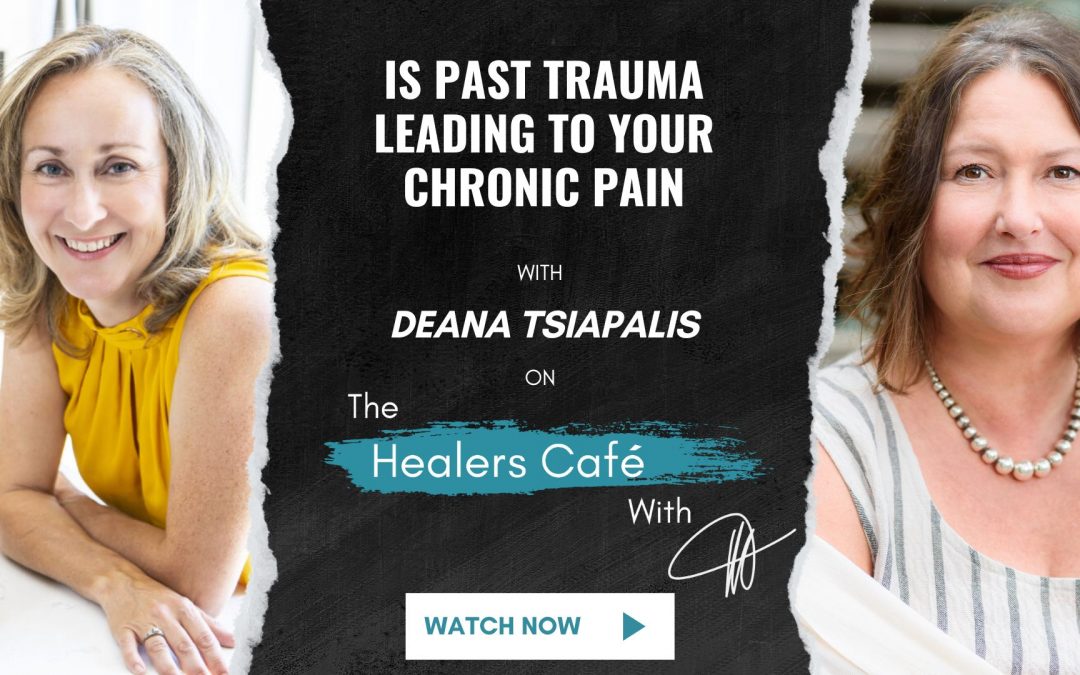
Deana Tsiapalis
Is Past Trauma Leading to Chronic Pain with Deana Tsiapalis on The Healers Café with Manon Bolliger

Alison Bladh
Menopause Symptoms Can Be Managed Naturally with Alison Bladh on The Healers Café with Manon Bolliger
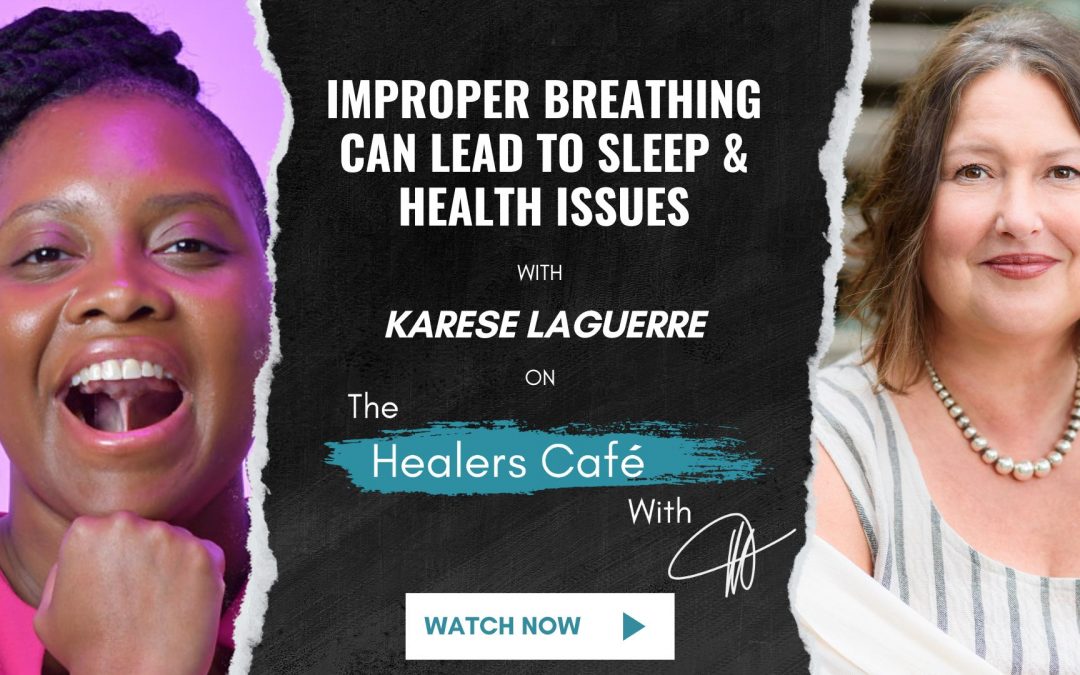
Karese Laguerre
Improper Breathing Can Lead to Sleep & Health Issues with Karese Laguerre on The Healers Café with Manon Bolliger
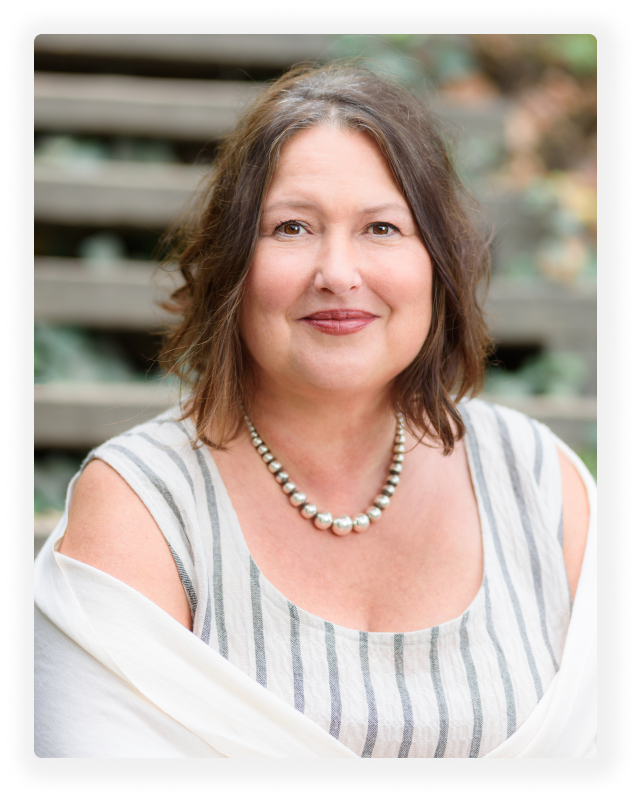
A Better Way To Connect With People
Manon is a newly retired Naturopathic Doctor, the Founder of Bowen College, an International Speaker, she did a TEDxTenayaPaseo (2021) talk “Your Body is Smarter Than You Think. Why Aren’t You Listening?” in Jan 2021, and is the author of 2 Amazon best-selling books “What Patient’s Don’t Say if Doctors Don’t Ask” & “A Healer in Every Household”.
FollOW MANON ON SOCIAL MEDIA
Manon Bolliger, FCAH, RBHT
Facilitator, Retired naturopath with 30+ years of practice, Business & Life Coach, International & TEDxTenayaPaseo (2021) Speaker, Educator, 2x Best Selling Author, Podcaster, Law Graduate and the CEO & Founder of The Bowen College Inc.
* Deregistered, revoked & retired naturopathic physician after 30 years of practice. Now resourceful & resolved to share with you all the tools to take care of your health & vitality!
![]()


